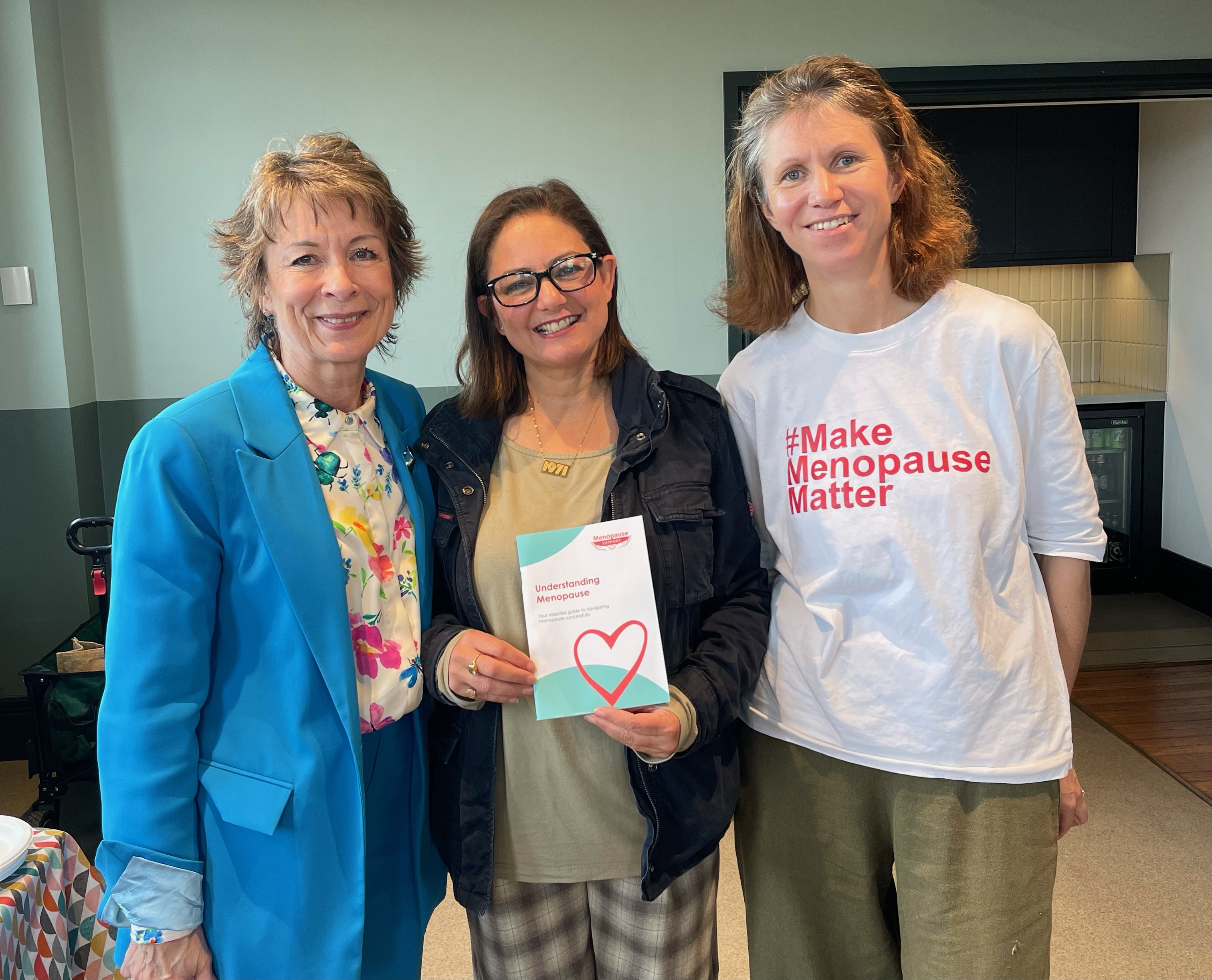
Guest blog by Emma Persand, SOM Diversity & Inclusion vice chair
World Menopause Day provides an opportunity to advance workplace support for women’s health.
This week SOM launched its Women’s Health at Work Network. Professor Dame Lesley Regan, the first Women’s Health Ambassador for England: Women’s Health Strategy, presented on the barriers and challenges women face in managing their health.
Health conditions impact men and women differently, or affect women exclusively, and are often sidelined. Conditions such as severe period pain, endometriosis, menopause, and mental health issues, including anxiety and depression, are prevalent among working women and significantly contribute to both absenteeism and presenteeism. The gender stereotype that women are more emotional, nurturing, and natural carers has led to a disproportionate distribution of domestic responsibilities in UK society. Figures from Carers UK show most unpaid carers are women, and the impact of this includes missing opportunities to progress in their careers, experiencing burnout and mental health issues, and finding it more difficult to attend appointments for their own health needs.
The recent report: Women’s Health Economics: investing in the 51% underscores the significant economic impact of neglecting women’s health. The UK has the largest female health gap in the G20 and the 12th largest globally. It highlights that inadequate support for conditions like menopause, endometriosis, and severe period pain costs the UK economy £11 billion annually due to absenteeism and reduced productivity. Furthermore, unemployment due to menopause symptoms alone results in a £1.5 billion annual loss, with around 60,000 women affected.
The report also reveals those regions with higher ethnic diversity and deprivation experience poorer health outcomes, emphasising the need for targeted investment. Regional disparities in access to healthcare services compound the situation. The report by Health Equity North: Women in the North, inequality, health and work, indicates that women in the North of England have lower access to hormone replacement therapy (HRT) and face poorer health outcomes compared to their Southern counterparts.
Race also plays a critical role in the inequality of health outcomes for women. The MBRRACE-UK report, Lessons learned to inform maternity care from the UK and Ireland Confidential Enquiries into Maternal Deaths and Morbidity 2020-22, reveals that Black women are almost four times more likely to die in pregnancy and childbirth compared to White women, while Asian women face nearly twice the risk. The British Menopause Society has produced a toolkit for clinicians specifically for Menopause in Ethnic Minority Women to improve the care provided and to acknowledge the lack of research within this demographic. This stark disparity highlights the urgent need for intersectional workplace policies that address systemic racism in healthcare. Employers must advocate for equitable health support and ensure that the global majority receive tailored care and workplace accommodations.
One of the most significant consequences of these health challenges is the lack of female role models and leaders in the workplace. The McKinsey Global Institute’s Women in the Workplace 2024: The 10th Anniversary Report has shown that when women face compounded barriers such as health issues, caregiving responsibilities, and regional inequalities, they are less likely to reach leadership positions. This not only limits individual career progression and opportunity for pension contributions but also deprives businesses of diverse leadership perspectives essential for innovation and growth.
Moving forward, collaboration between business leaders, healthcare providers, policymakers, occupational health, HR, and advocacy groups is crucial for driving real change. Women’s health is not just a niche concern but a central focus in creating productive, diverse, and innovative work environments. Addressing the social risks women face, such as sexual harassment, and inadequate workplace policies that claim to be ‘gender-neutral,’ requires a cultural shift.
On this World Menopause Day, let us commit to ensuring workplaces champion health and wellbeing, recognising the diverse needs of all employees. By fostering collaborative and inclusive approaches, we create not just better workplaces but a better society - one where everyone can thrive and succeed.
Emma Persand, RGN QN, (pictured above, centre) is founder of Lemur Health’s 'Think Menopause', chair of the Women’s Health at Work Network, and co-chair of Greater Manchester’s Combined Authority’s Women and Girls’ Equality Panel. She served on the technical committee for BS 30416: 2023. Menstruation, menstrual health, and menopause in the workplace guide, and is on the current BSI technical committee for ISO: Menstruation and Menopause in the Workplace.

